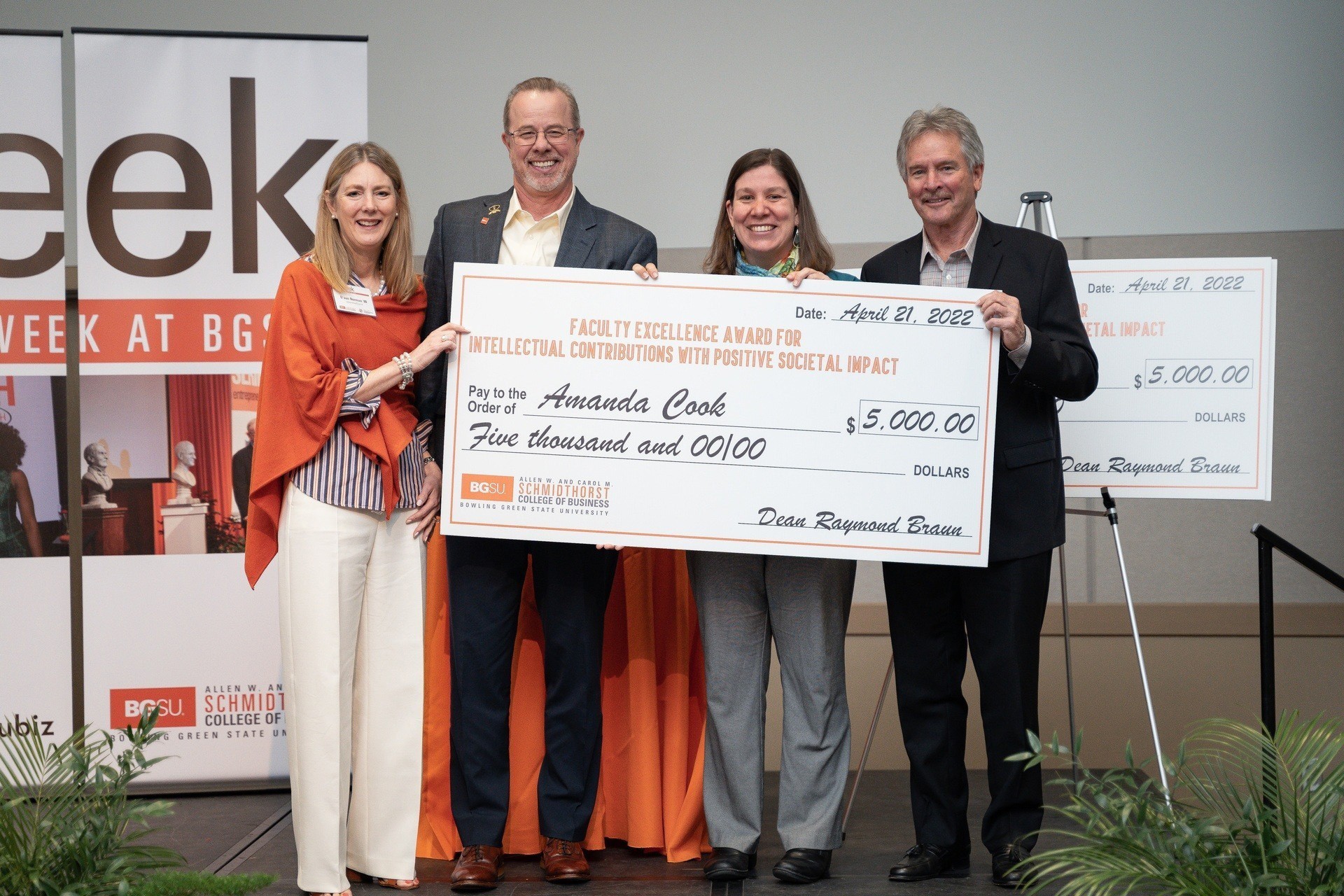Amanda Cook wins the 2022 Faculty Excellence Award in Research
The Leadership Council, an advisory board for the Schmidthorst College of Business, comprised of prominent alumni and friends, recognized Dr. Amanda Cook as the recipient of the 2022 Faculty Excellence Award in Research. The title of the award is Faculty Excellence in Intellectual Contributions with Positive Societal Impact Award and comes with a plaque and an award of $5,000. The award was based on five indicators of excellence in scholarly activities that have positive societal impact, which included publications and quality, impact of intellectual contributions on society, scholarly impact, grants with positive societal impact, and impact of research on social policies, legislation, and business processes.
Dr. Cook’s work could inform social policies and legislation. As a social science researcher, she uses innovative empirical tools to answer questions in a broad range of disciplines including health insurance, healthcare finance, health care policy, public health, community health, sociology, and economics.

In 2020, the AACSB published new accreditation standards which focus on societal impact. On page 50, the standards say “Further, high-quality schools have a positive societal impact by addressing broader social, economic, business, and/or physical environment issues, which could be at a local, regional, national, or international scale. This impact results from internal and external initiatives and aligns with the concept of business schools being a force for good in society. Within this context, interdisciplinary work becomes an important means to achieving goals that have great impact on society. Thus, interdisciplinary work is encouraged and applauded.” Dr. Cook’s work is very interdisciplinary and as such, it informs decision making in a wide range of applications. In studying risky behavior (sexual health choices and marijuana decriminalization), she helps both individuals and local and state governments decide on evidence-based policy for themselves and their communities. In studying health insurance reimbursement, she examines who benefits (and who does not) as health insurance eligibility and reimbursement change. As health insurance premiums are on the rise and health care expenditures become an increasingly large fraction of both GDP and household budgets, this work impacts individuals, communities, firms, and government. Her current work focuses on three topics. First, she is studying how increasing market power in the health insurance market outside the purview of FTC regulation impacts firms, policy holders, and expenditures. Second, she is studying the impact of cannabis legalization on prescription drug expenditures and health insurance claims and premiums. Third, she is examining differential health care provision in the Emergency Department for minority populations. While these topics may seem disparate, the common thread is examining how policy changes directly and indirectly impact individuals, firms, and governments. This information is needed to help create positive societal change.
Dr. Cook is grateful to the Schmidthorst College of Business’s Leadership Council for encouraging and supporting research that has broad societal impact. As a scholar, she loves getting submerged in the research question and empirical techniques, but as a mom, wife, and friend, she finds research the most rewarding when it matters for individuals or society broadly.
Updated: 10/12/2022 03:06PM
